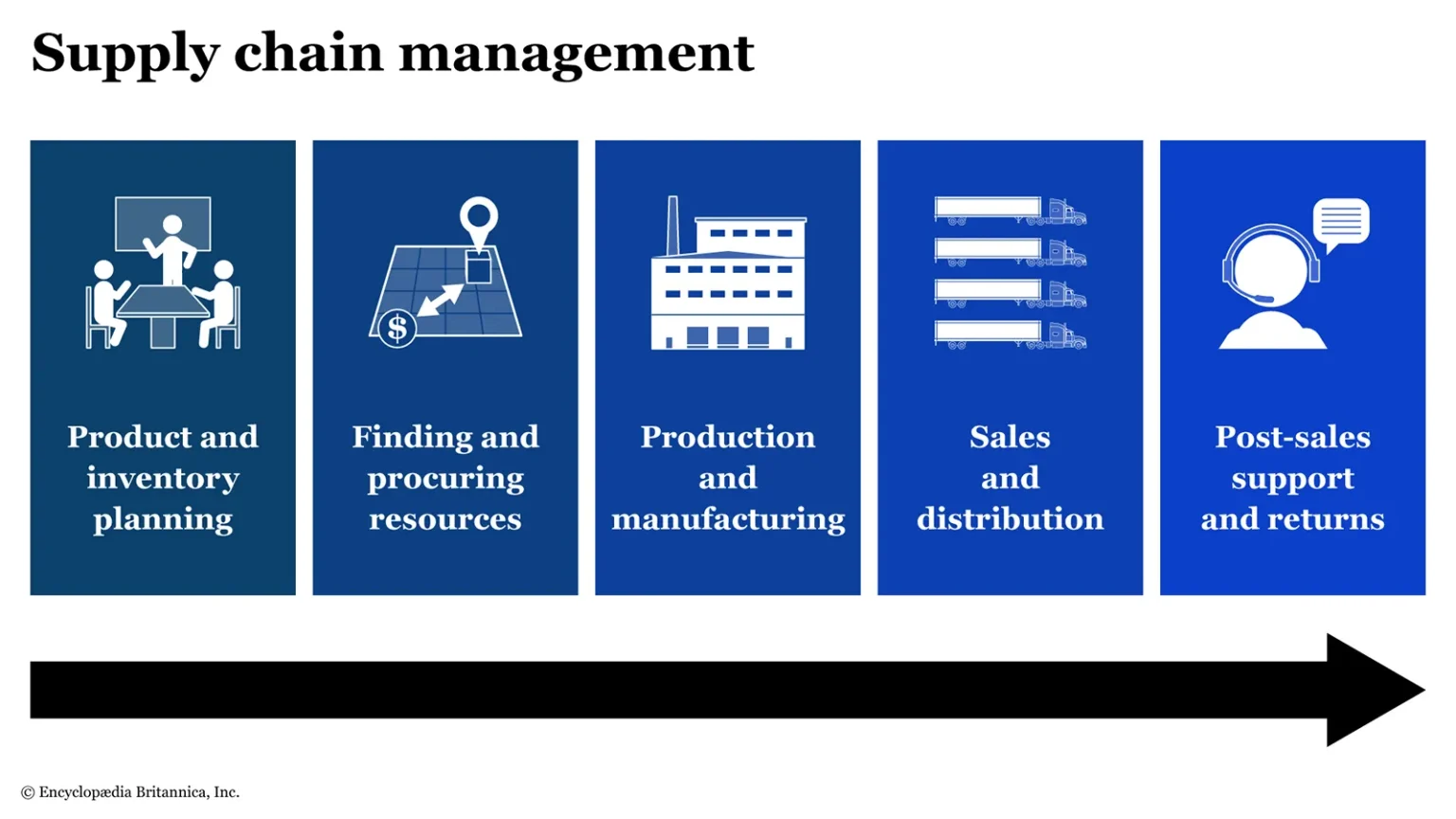In the competitive world of business, efficiency and reliability are critical for success. One of the key systems that makes this possible is supply chain management. Simply put, supply chain management is the strategic coordination of all processes involved in producing and delivering a product or service, from raw materials to the end customer. It plays a central role in reducing costs, improving quality, and ensuring that businesses meet customer demands on time.
What Supply Chain Management Is in Practice
At its core, supply chain management involves a network of suppliers, manufacturers, distributors, and retailers working together to bring products to market. It’s more than just moving goods—it’s about optimizing each stage for maximum efficiency.
A well-structured supply chain covers:
- Procurement – Sourcing materials from reliable vendors.
- Production – Converting raw materials into finished products.
- Warehousing – Storing products until they are ready for shipment.
- Distribution – Delivering goods to retailers or customers efficiently.
Key Objectives of Supply Chain Management
The purpose of supply chain management is not only to move products but to ensure the entire process runs smoothly and profitably. Key objectives include:
- Cost Reduction – Streamlining operations to save money.
- Customer Satisfaction – Delivering products on time and in good condition.
- Risk Management – Minimizing disruptions from supply shortages or delays.
- Sustainability – Reducing waste and improving environmental responsibility.
Benefits of Effective Supply Chain Management
When supply chain management is executed effectively, it can transform a business:
- Improved Efficiency – Processes are streamlined, reducing delays.
- Better Quality Control – Consistent monitoring ensures product quality.
- Higher Profit Margins – Cost savings lead to improved profitability.
- Competitive Advantage – Businesses can outperform competitors in service and delivery.
Common Challenges in Supply Chain Management
While the benefits are significant, businesses also face challenges such as:
- Global Disruptions – Events like natural disasters or pandemics can slow operations.
- Rising Transportation Costs – Fuel and shipping costs can impact pricing.
- Demand Fluctuations – Seasonal changes and market trends require accurate forecasting.
- Complex Supplier Networks – Managing relationships across multiple regions can be difficult.
The Future of Supply Chain Management
Technology is shaping the next era of supply chain management. Artificial intelligence, automation, blockchain, and IoT devices are making supply chains smarter, faster, and more transparent. These innovations will allow businesses to make quicker decisions, track products in real time, and respond rapidly to changes in demand.
Understanding what supply chain management is and applying it effectively is essential for any business that wants to thrive in today’s global economy. By optimizing every step of the process, companies can cut costs, improve customer satisfaction, and build a more sustainable future.

